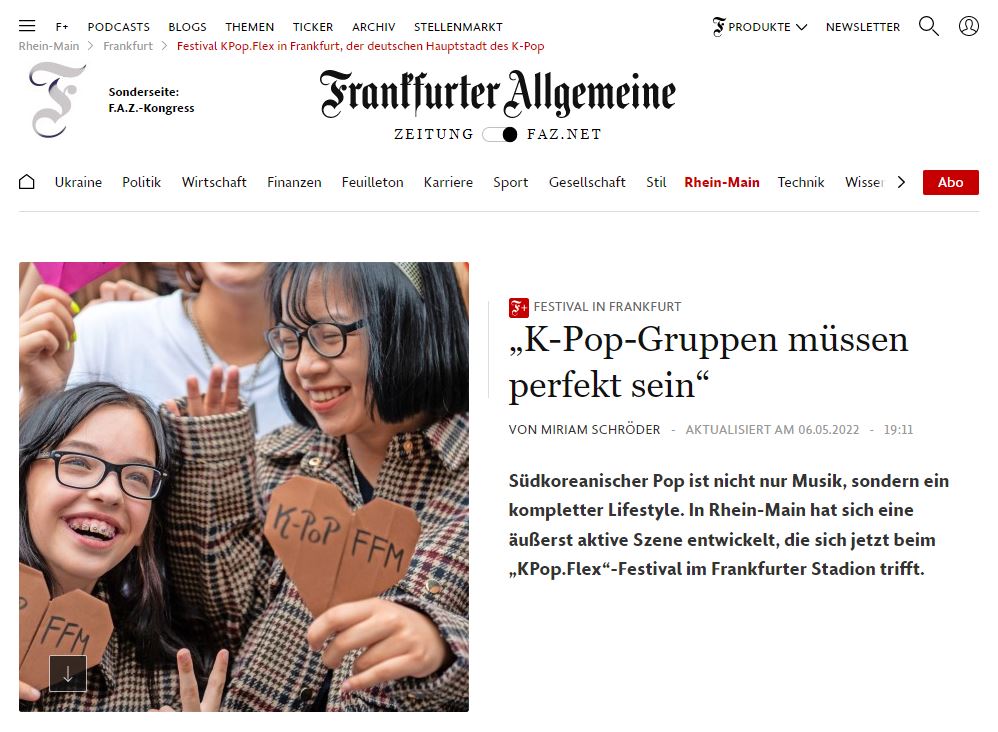
The leading German newspaper Frankfurter Allgemeine Zeitung on May 6 covered the K-pop boom in the Western European country in its article "K-pop capital of Germany." (Screen capture from daily's site)
By Min Yea-Ji and Yoon Sojung
"K-pop is a trend leader. K-pop bands like BTS or BLACKPINK long ago hit music charts in the U.S. and Europe, and Frankfurt is now becoming the K-pop capital of Germany."
The leading German daily Frankfurter Allgemeine Zeitung (FAZ) on May 6 said this and other points on the K-pop boom in Frankfurt in the article "K-pop capital of Germany."
The German city will host "KPOP.FLEX," the largest K-pop concert in Europe from May 14-15.
The article said a K-pop dance group saw its number of members passionate for the genre who assemble in Frankfurt's Goethe Square jump from about 30 a few years ago to more than 150, making the gathering the largest of its kind in Germany.
Other dance teams even travel hundreds of kilometers to Frankfurt from Hamburg or Munich.
Germany's fifth-largest city has other evidence of the K-pop boom there.
FAZ said, "Seven years ago, a Korean pop music store opened in the Schwanheim area of Frankfurt, and this place also publishes Germany's first and only K-pop magazine, K-Bang."
The magazine's managing editor Isabelle Opitz said, "Many Koreans live in Frankfurt and vicinity and many Asian companies are located there, so it's natural for the city to be at the center of the K-pop boom."
"K-pop's characteristics lie in the genre's sophisticated and professionally made songs and music videos."
The article said fans passionate for K-pop learn the Korean language and extend their interest to Korean culture as a whole. They dye their hair to match those of their favorite stars or follow the fashion of young Koreans. For this reason, FAZ said, "K-pop is not just music but also a complete lifestyle."
Not all K-pop fans fit these patterns, however. For 30- to 40-somethings, the genre is popular as an alternative to U.S. pop culture.
FAZ said fan culture is what makes K-pop unique.
K-pop artists maintain close ties with their fans so that the latter feel an intimate connection while being far from the acts. The article said this type of fan culture offers a feeling of safety and inclusion to the young generation as fans have a "safe space" in the K-pop world when experiencing hardship.
jesimin@korea.kr